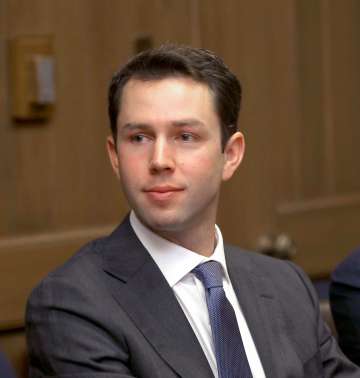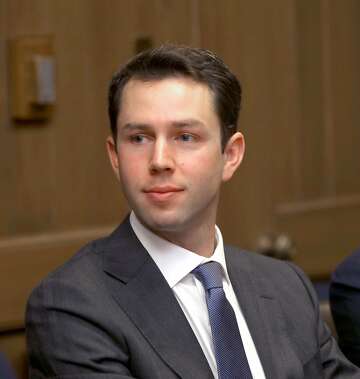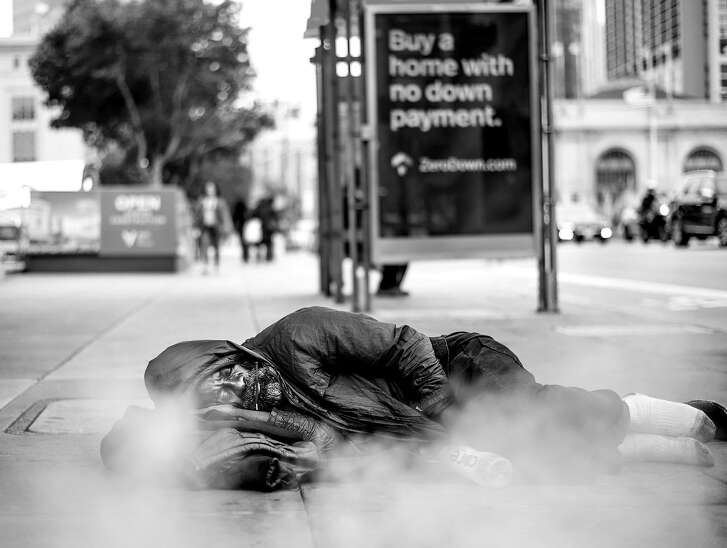DA candidates outline how they’d battle SF’s vehicle break-in epidemic


Voter anger over San Francisco’s vehicle break-in epidemic has district attorney candidate Chesa Boudin proposing that the city help replace the broken windows and competitor Leif Dautch suggesting that convicted burglars do the repairs.
“For young, first-time, non-organized-crime offenders, Victims Services would operate a community-service restitution program where offenders would repair the glass of cars that have been broken into,” said Dautch, one of four candidates in a tight race to replace D.A. George Gascón, who resigned recently.
“This glass-repair unit would be one component of a diversion program or probation sentence, not the entire punishment for the crime,” said Dautch, a deputy state attorney general and former member of the San Francisco Juvenile Probation Commission.
Boudin is proposing the city set up a private-public partnership to start a mobile auto-glass repair operation that would respond directly to the scene of burglaries and repair the broken windows on the spot for “a fraction of the cost” of window repair shops.
Boudin said that one of the biggest frustrations for auto-burglary victims is the cost of replacing their window (as well as the stolen goods) and the inconvenience of taking the time to deal with cleaning and repairing the damage.
Under Boudin’s plan, victims would simply take a picture of the broken window and upload it along with details, like the car’s location. The auto-glass repair team would arrive within three hours and fix the window on the spot.
“It occurred to me a couple years ago, after I had my car broken into and had to deal with the frustration and inconvenience of taking it to an auto-glass repair shop,” said Boudin, a deputy public defender.
Vehicle break-ins have been a big problem in San Francisco in recent years. And while reports of break-ins have declined this year, the crime remains stubbornly common. In September, there were 2,103 vehicle break-ins reported, or roughly 70 per day. Those numbers were an uptick over the same month last year.
How the new district attorney plans to deal with the problem, including the public perception that those who break into vehicles and commit other property crimes often face few consequences, has been a hot topic on the campaign trial.
All four candidates in the race pledged to make prosecution of vehicle-burglary cases a priority, especially those perpetrated by organized rings. But they’ve been less vocal about what sentences they would seek.
So we asked them what they would recommend for first-, second- and third-time offenders.
• Boudin said he wouldn’t have “a one-size-fits-all policy.”
“For example, if the person is drug-addicted, I would require completion of a rigorous drug-treatment program,” he said.
The “punishment will get more severe if the person is a repeat offender,” he said, but he left open the question of exactly what the punishment would be. “Mandatory-minimum sentencing schemes are not fair and significantly contribute to mass incarceration.”
• Dautch, who has the support of the San Francisco Deputy Sheriffs’ Association, said that while his sentencing recommendations would be made on a case-by-case basis, he would set guidelines if he is elected district attorney.
First offenders who aren’t part of an organized theft ring would be in line for drug-rehab diversion programs and community service. For second offenders, he would seek six months in county jail, and a year for third offenders.
If the offender were part of an organized ring, however, Dautch said he would ask for six months for the first conviction, one year for the second and three years for the third.
• Candidate Nancy Tung, who works as a prosecutor in the Alameda County district attorney’s office, said she would likely recommend diversion for first-time, misdemeanor theft cases with no prior criminal history.
Tung said sentencing on a second or third offense would depend on a person’s criminal history and the facts of the crime.
“If we are talking about someone who continues to steal under $950 worth of merchandise from stores, then on a second or third offense we are looking at some time in custody, whether that’s physically in jail or through the Sheriff’s Work Program,” Tung said. In that program, offenders do a variety of jobs at least two days a week instead of spending time in jail.
Tung said she would “drop the hammer” on those involved in “sophisticated, organized rings who prey on our city,” but offered no specifics on what that hammer would be.
• The fourth candidate in the race, former Police Commission President Suzy Loftus, didn’t offer any specific sentencing guidelines.
“When I’m district attorney, people with a criminal history or current open cases who continue to break into cars will face more severe sentences than someone committing the crime for the first time,” Loftus said.
Mayor London Breed appointed Loftus to fill the remaining time in Gascón’s term.
The election is on Nov. 5.
San Francisco Chronicle columnist Phil Matier can also be heard on KCBS radio Monday through Friday at 7:50 a.m. and 5:50 p.m. Got a tip? Call 415-777-8815, or email pmatier@sfchronicle.com. Twitter: @philmatier

 Pathways Drug Rehabilitation Luxury Addiction Treatment & Detox Center
Pathways Drug Rehabilitation Luxury Addiction Treatment & Detox Center


